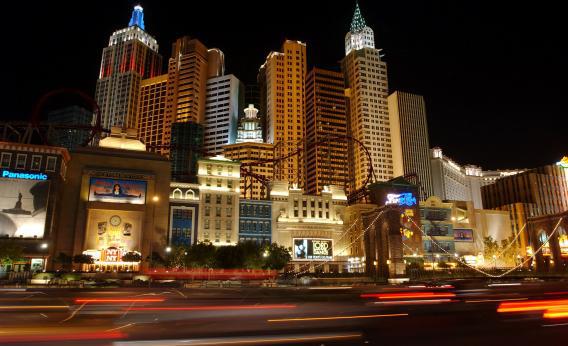I think the idea that Las Vegas can be used as a stand-in for the American economy as a whole is badly overblown, but Patrick Coolican’s column in Atlantic Cities about the specific economic trajectory of that city over the past ten years is excellent as long as you discount for some rhetorical bluster. And it raises a question I’m very interested in. Given that “the rent is too damn high” in Silicon Valley, San Francisco, Seattle, Boston, New York, and Washington can’t we just create a new innovation cluster someplace else?
Maybe! And certainly they’re trying:
The company has thrived in Las Vegas, and now Hsieh has set his sights on a bigger mission. Hsieh is a passionate urbanist, given to handing out copies of Harvard economist Edward Glaeser’s book, Triumph of the City, to anyone in shouting distance. Unlike his tech company brethren, who have tended to build massive, self-contained campuses on the edge of their tech city locales, Hsieh decided to move Zappos to downtown Las Vegas, into the old city hall.
It was a bold move. Despite pockets of promise, downtown Las Vegas, which is home to the city’s older and less glamorous hotels, has not witnessed the urban renaissance that has swept so many other cities across the country. (Imagine Hartford with casinos instead of insurance companies.) Hsieh also created an entity called the Downtown Project and gave it $350 million in seed money to start tech startups and community minded small businesses.
Can it work? Time will tell, though the energy is palpable. GigaOM recently profiled five Vegas tech companies to watch, a development that would have been unheard of even two years ago. Hsieh has rented out 50 units of a downtown condo tower and turned it into a freewheeling tech and culture salon, like a college dorm for a Vegas Ted conference.
I think the problem here isn’t that this is a bad idea, it’s that it’s too good of an idea. There are lots of high-tech companies that, for one reason or another, would benefit from a location outside of the major existing tech clusters. And there are plenty of cities that, like Las Vegas, haven’t enjoyed a downtain rennaissance of an adequate scale to start pricing people out. Each of those cities could plausibly construct a brand new high-tech cluster in downtown Vegas or downtown Cleveland or whatever city you care to name. But they can’t all benefit from that dynamic. And the fact that a bunch of different cities are trying this simultaneously will tend to prevent the emergence of a true cluster and the benefits that come from clustering.
From a national point of view, the optimal strategy would be to designate one or two cities as key “aspirational tech cluster cities.” So instead of having Zappos in Las Vegas and Rackspace in San Antonio, they’d either both be in Vegas or both be in San Antonio. But of course we (for good reason) don’t have the kind of central planning that would make that possible.
